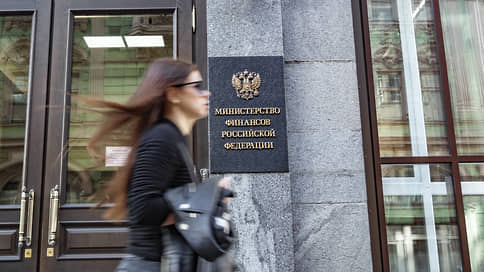The Ministry of Finance wants to stop funding science, bypassing the expertise of the Russian Academy of Sciences
[ad_1]

The Ministry of Finance published a draft government decree closing the loophole for obtaining budget funding bypassing the expertise of the Russian Academy of Sciences. The requirement of RAS expert opinions has already been included in the system of financing science from the budget, but the inconsistency of the documentation makes it possible “in some cases” to achieve the allocation of money for scientific projects, the financing of which after the fact is recognized as inappropriate. In the Russian Federation, where the budget already finances most of the scientific research, in recent years the authorities have gravitated towards shifting this burden to business, insisting on the commercialization of research through a closer linkage between the work of scientists and the needs of the market – but so far it is mainly the largest companies that are involved in this.
The draft government decree “On Amendments to the Regulations on Measures to Ensure the Execution of the Federal Budget”, published by the Ministry of Finance on regulation.gov.ru, closes the possibility of providing scientific research not approved by the Russian Academy of Sciences with budgetary funds. The problem that the project solves is described as the possibility of circumventing the current requirements for the control of the RAS over topics that are paid for from the budget: the provision on the formation of a state assignment and the rules for the RAS to manage scientific and scientific and technical activities already require the denial of access to state funding for scientific work, on who received a negative conclusion from the academy, and in the state assignments of budgetary scientific institutions. However, “there are cases of violation of the deadlines for submitting projects of scientific topics to the Russian Academy of Sciences, in connection with which the conclusions of the Russian Academy of Sciences on some projects of scientific topics are submitted after the return distribution” of funds – and as a result, the negative conclusions of the RAS come into the system when the money is already allocated, explains the Ministry of Finance.
It should be noted that in May, at a general meeting of members of the Russian Academy of Sciences, the president of the Academy, Gennady Krasnikov, said that “there are often cases when the expertise of the academy, which is the highest expert body of the country, is not taken into account” and that “this practice will be stopped.” The office of Deputy Prime Minister Dmitry Chernyshenko, who oversees science, told Kommersant that “there is a work being done to ensure effective interaction of all actors in the scientific sphere in EGISU R&D (profile GIS for accounting for scientific projects.— “b”) to ensure transparency and traceability of scientific activities and focus support tools on the most demanded projects.” They also noted that the State Duma is considering a bill on scientific expertise aimed at strengthening the expert function of the Russian Academy of Sciences (adopted in the first reading in March 2023, see Kommersant on February 14). “Considering the above, the draft resolution proposes to establish restrictions on the approval of limits on budget obligations until such a conclusion is received,” the Ministry of Finance states.
State spending (44-FZ) on procurement in the field of science is already declining: in 2020, the amount of such government contracts amounted to 259 billion rubles, in 2021 – 268 billion rubles, in 2022 – 182 billion rubles, due to the struggle states for their efficiency: the budget finances 60-70% of the costs of research and development, but the science management system is not focused on commercial demand for the results of scientific activity (see Kommersant of June 7). The gradual exit of the state from the sector is accompanied by plans for the commercialization of R&D and the organization of closer interaction between researchers and business. However, for the time being, it is mainly the largest companies that are the least dependent on the political situation and the uncertainty associated with it that are ready to invest commercially in R&D in Russia.
[ad_2]
Source link






